Filter by
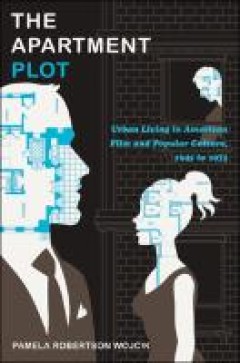
The Apartment Plot
Rethinking the significance of films including Pillow Talk, Rear Window, and The Seven Year Itch, Pamela Robertson Wojcik examines the popularity of the “apartment plot,” her term for stories in which the apartment functions as a central narrative device. From the baby boom years into the 1970s, the apartment plot was not only key to films; it also surfaced in TV shows, Broadway plays, lite…
- Edition
- -
- ISBN/ISSN
- 9780822392989
- Collation
- -
- Series Title
- -
- Call Number
- -
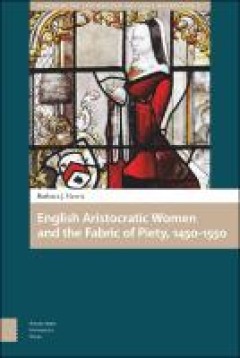
English Aristocratic Women and the Fabric of Piety, 1450-1550
- Edition
- -
- ISBN/ISSN
- 9789048537228
- Collation
- -
- Series Title
- -
- Call Number
- -
- Edition
- -
- ISBN/ISSN
- 9789048537228
- Collation
- -
- Series Title
- -
- Call Number
- -
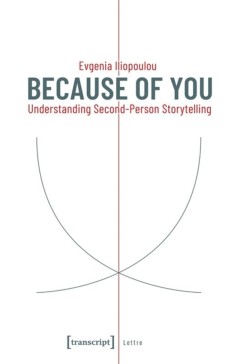
Because of You : Understanding Second-Person Storytelling
Second-person storytelling is a continually present and diverse technique in the history of literature that appears only once in the oeuvre of an author. Based on key narratives of the post-war period, Evgenia Iliopoulou approaches the phenomenon in an inductive way, starting out from the essentials of grammar and rhetoric, and aims to improve the general understanding of second-person narrativ…
- Edition
- -
- ISBN/ISSN
- 9783839445372
- Collation
- 256 halaman
- Series Title
- -
- Call Number
- 800 ILI b
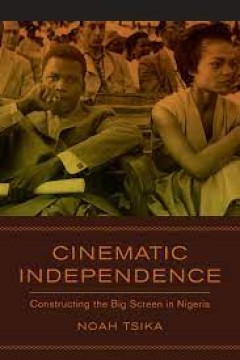
Cinematic Independence Constructing the Big Screen in Nigeria
Cinematic Independence traces the emergence, demise, and rebirth of big-screen film exhibition in Nigeria. Film companies flocked to Nigeria in the years following independence, beginning a long history of interventions by Hollywood and corporate America. The 1980s and 1990s saw a shuttering of cinemas, which were almost entirely replaced by television and direct-to-video movies. However, after…
- Edition
- -
- ISBN/ISSN
- 9780520386105
- Collation
- -
- Series Title
- -
- Call Number
- -
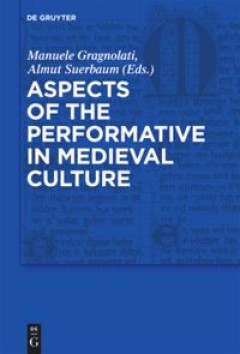
Aspects of the Performative in Medieval Culture
The volume assesses performative structures within a variety of medieval forms of textuality, from vernacular literature to records of parliamentary proceedings, from prayer books to musical composition. Three issues are central to the volume:the role of ritual speech acts the way in which authorship can be seen as created within medieval texts rather than as a given category finally, phenomena…
- Edition
- -
- ISBN/ISSN
- 9783110222463
- Collation
- -
- Series Title
- Trends in Medieval Philology volume 18
- Call Number
- 800 ASP

Aspects of Poverty and Inequality in Cameroon
Poverty and inequality remain extremely high for Cameroon despite improvements in poverty figures between 1996 and 2001. To understand the dynamics of poverty and inequality between 1996 and 2001, this book develops a poverty and inequality profile, investigates the sources of inequality along spatial lines and simulates some policies which could be used in the reduction of poverty and inequali…
- Edition
- -
- ISBN/ISSN
- 9783631595350
- Collation
- 171 halaman
- Series Title
- -
- Call Number
- 362 KUM a
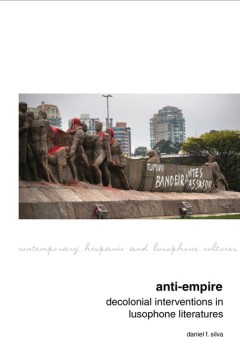
Anti-Empire : Decolonial Interventions in Lusophone Literatures
Anti-Empire explores how different writers across Lusophone spaces have engaged with imperial and colonial power at its various levels of domination, while imagining alternatives to dominant discourses pertaining to race, ethnicity, culture, gender, sexuality, and class. Guided by a theoretically eclectic approach ranging from Psychoanalysis, Deconstruction, Postcolonial Theory, Queer Theory, a…
- Edition
- -
- ISBN/ISSN
- 9781786941008
- Collation
- -
- Series Title
- -
- Call Number
- 800 SIL a
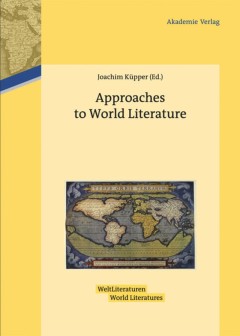
Approaches to World Literature
The present volume introduces new considerations on the topic of "World Literature", penned by leading representatives of the discipline from the United States, India, Japan, the Middle East, England, France and Germany. The essays revolve around the question of what, specifically in today's rapidly globalizing world, may be the productive implications of the concept of World Literature, which …
- Edition
- -
- ISBN/ISSN
- 9783050062716
- Collation
- 180 halaman
- Series Title
- WeltLiteraturen / World Literatures volume 1
- Call Number
- 800 APP
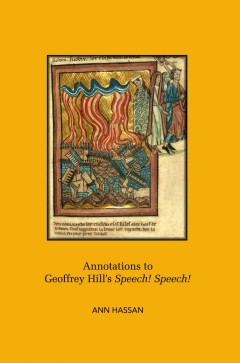
Annotations to Geoffrey Hill's Speech! Speech!
Geoffrey Hill’s Speech! Speech! (2000) encapsulates two thousand years’ worth of utterances in a symbolic act of remembrance and expression of despair for the current age, in which we find “our minds and ears fouled by degraded public speech—by media hype, insipid sermons, hollow political rhetoric, and the ritual misuse of words.” Through 120 densely allusive stanzas—“As many as …
- Edition
- -
- ISBN/ISSN
- 9781468129847
- Collation
- 282 halaman
- Series Title
- -
- Call Number
- 800 HAS a
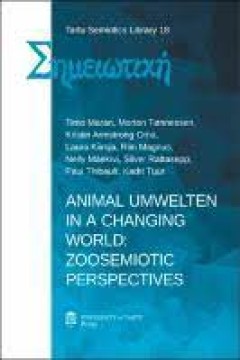
Animal Umwelten in a Changing World : Zoosemiotic Perspectives
The book raises semiotic questions of human–animal relations: what is the semiotic character of different species, how humans endow animals with meaning, and how animal sign exchange and communication has coped with environmental change. The book takes a zoosemiotic approach and considers different species as being integrated with the environment via their specific umwelt or subjective percep…
- Edition
- -
- ISBN/ISSN
- 9789949772810
- Collation
- 276 halaman
- Series Title
- -
- Call Number
- 400 MAR a
 Computer Science, Information & General Works
Computer Science, Information & General Works  Philosophy & Psychology
Philosophy & Psychology  Religion
Religion  Social Sciences
Social Sciences  Language
Language  Pure Science
Pure Science  Applied Sciences
Applied Sciences  Art & Recreation
Art & Recreation  Literature
Literature  History & Geography
History & Geography